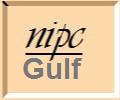Gaza and the West Bank of the River Jordan may not be in the Gulf but they are part of the Middle East North Africa region and those districts have plenty of links with the Gulf Cooperation Council states. Right now intellectual property is probably the last thing on the minds of the inhabitants of those areas but it is to be hoped that a time will come when the guns fall silent and their shattered economies can be reconstructed. Such reconstruction will require massive investment much of which could come from the GCC countries. However, such investors will wish to see that their investments in branding, design, technology and creativity are protected adequately.
Finding information about the legal protection that is available in those territories is not easy because they are among the few parts of the world that are not yet party to the WIPO Convention. That does not, however, mean that they have no interest in intellectual property. When I visited the WIPO between 2 and 4 Sept 2019 to address the Advisory Committee on Enforcement I had the honour of sharing a table with the Palestinian observer to the proceedings (see Another Side of the WIPO 5 Sept 2019 NIPC News). While chatting in the intermissions I learned that he was legally qualified and that he had actually been instructed in IP cases before entering public service.
As he did not seem to know any of the delegates whom I had been addressing I offered to introduce him. We started with the British delegation which was staffed by Elizabeth Jones of the Intellectual Property Office and District Judge Hart of the Intellectual Property Enterprise Court small claims track and had just moved on to the American delegation when the chairperson called the meeting to order and we had to return to our seats.
The only information that I have been able to find out about Palestinian IP law from the WIPO Lex web page is that it is party to 29 treaties none of which seems to relate to IP and that the link to its national intellectual property office leads to An-Najah National University. Another page on the WIPO website states:
"The term patent protection is four years as from the filing date, renewable for additional three periods of four years each. Palestine is not part of the TRIPS Agreement; therefore it is not obliged to have a minimum 20 year protection term."
I have, however, found a thesis by Ihab G. Samaan entitled A Historical View of Intellectual Property Rights in the Palestinian Territories which states on page 63 that:
"there are a number of laws protecting intellectual property rights. These are inherited from the British Mandate and the period of Jordanian rule in the West Bank. The Patents and Designs Ordinance No. 33 of 1924 and the Trademarks Ordinance No. 35 of 1938 are in force in the Gaza Strip, while the Patents for Inventions and Industrial Designs Law No. 22 of 1953 and the Trademarks Law No. 33 of 1953 are in force in the West Bank. The Copyright Act of 1911, as incorporated in Palestine and amended by the Copyright Ordinance No. 16 of 1924, is in force in both the West Bank and the Gaza Strip."
This seems to be consistent with information published by law firms with offices in the area. The reason for the differences between the laws in Gaza and those in the West Bank appears to be that Gaza was administered by Egypt between 1948 and 1967 and the West Bank by Jordan during those years.
If and when I find out more about the laws of those territories I shall publish them here. In the meantime, anybody who wants to discuss the topic can call me on +44 (0)20 7404 5252 during UK business hours or send me a message through my contact page,


